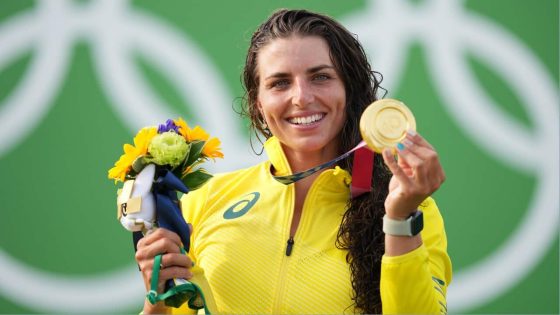It’s no secret that in Australia’s most popular sports — including cricket, AFL and rugby league — many elite athletes are on lucrative salaries.
But what about more niche sports — sports that don’t fill stadiums every week, command prime-time TV slots and secure major sponsorship deals that fund those lucrative salaries?
Athletes who compete in the Olympic Games often dedicate their lives to preparing for competitions, but for the public at large, their sport is only front and centre for a short period every four years.
The truth is, many of these athletes — despite their professionalism and commitment — don’t even earn a full-time salary from their sport.
So, how much do athletes get paid for taking part in the Olympics, and where does the money come from?
Do Australian athletes get paid to compete in the Olympics?
Australian athletes aren’t paid to compete in the Olympic Games, but they don’t have to fund their own participation.
The Olympics funding model for Australians is complex and varies depending on each athlete and sport, but attendance costs (such as flights, accommodation and food) are often covered by either the Olympic Committee, sponsors, or grants.
Jump down to the ‘How do Olympic athletes make money?’ section of this article to find out more of the financial details.
Do Olympic athletes get paid more if they win a medal?
Ahead of the Paris Olympics, it would become the first international federation to award prize money at the Olympic Games.
A total prize pot of $US2.4 million ($3.6 million) has been allocated to reward athletes who win a gold medal in any of the 48 track and field events.
Apart from that, here’s how it generally works.
Olympic gold, silver or bronze medals can come with a cash prize, but the amounts vary depending on the event and where an athlete places on the podium.
It also depends on the country the athletes are representing. This is because prize money comes from these countries, not the International Olympic Committee (IOC) or the host country.
Under Australia’s Medal Incentive Funding program, individual athletes are paid $20,000 for a gold medal, $15,000 for a silver and $10,000 for a bronze.
However, each athlete can only receive one payment — so those who win multiple medals get paid the amount corresponding to their best result.
For team sports, the payment depends on the size of the team and comes from the Australian Olympic Committee (AOC) rather than the government.
Which countries have the highest medal payments?
The Southeast Asian city-state of Singapore most likely has the highest medal payments in the world.
Singaporean athletes receive S$1 million ($1.1 million) if they win a gold medal, S$500,000 ($561,880) for a silver and S$250,000 ($281,903) for a bronze.
Under Australia’s Medal Incentive Funding program, individual athletes are paid $20,000 for a gold medal, $15,000 for a silver and $10,000 for a bronze.
US athletes reportedly receive US$37,500 ($56,259) for a gold medal, US$22,500 ($33,755) for a silver, and US$15,000 ($22,503) for a bronze.
Athletes from some countries — such as Norway, Sweden and the United Kingdom — don’t get paid at all for winning medals.
Some countries, which may not have the most generous standard medal payment system, have previously handed vast sums to victorious Olympians.
At the Tokyo 2020 Olympic Games, Filipino weightlifter Hidilyn Diaz won her country’s first-ever gold medal and was PHP56.5 million ($1,451,648) for her efforts.
The money was compiled by the Philippine Sports Commission, foundations, politicians, business tycoons and her former university.
She also received multiple houses and land, and free flights for life.
How do Olympic athletes make money?
In addition to medal prize money, some athletes receive money through funding programs and grants.
British athletes — who, as mentioned above, don’t get medal payments — receive yearly funding.
For athletes in some Olympic sports, such as football and basketball, their sport is a full-time job and they are paid a salary for representing a club in a national competition.
Many individual sports also hold tournaments and competitions throughout the year, where players are rewarded with prize money.
Others have sponsorship agreements with sportswear brands and supplement companies, which can involve wearing branded apparel, appearing in advertisements, or promoting products on social media.
Australian Olympians can also receive assistance through the Australian Sports Commission’s , which provides financial support to athletes for both the cost of living and sport-associated expenses.
The commission has committed more than $47 million across 36 sporting organisations in dAIS grants since the Tokyo Games. Eligible athletes training in Olympic, Paralympic and Commonwealth Games sports receive between $4,000 to $37,500 per year.
The Indigenous Athlete Performance Grant has also been developed ahead of the Paris Olympics, with grants of $5,000 on offer for eligible athletes.
The Australian government also invests in Olympic and Paralympic athletes. In June, the Albanese $283 million in new money to flow to elite athletes, coaches and support staff over the next two years.




